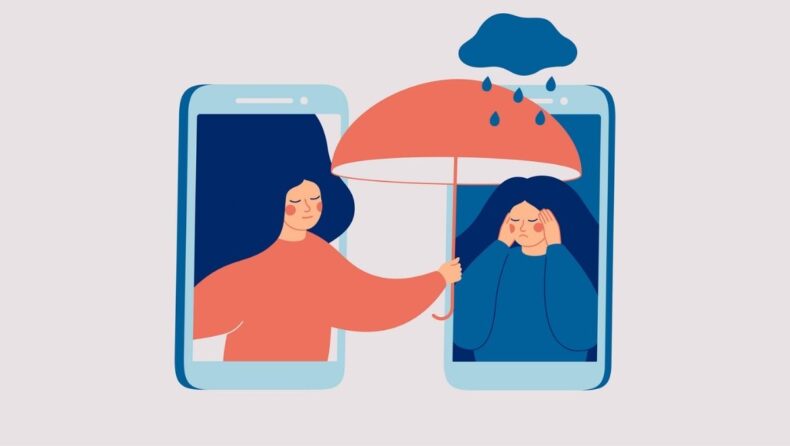Our relationship with ourselves depends on the type of information we process daily through technology; it can be from our surroundings, the people we interact with, the amount of positive or negative experiences we go through, and digital spaces.

Our perception of who we are and what we want to do, whether its daily chores or in the workplace, even for a larger life purpose, usually relies on the way the external world interacts with us and vice versa, and the way we process that information mentally can tell us how we feel about ourselves.
Since the pandemic began two years ago, I think saying that “I feel lost, scared and anxious about everything nowadays.” is a mutually exclusive feeling. When we go through extremely challenging changes in life, especially related to our health and the health of our loved ones, it can get tough to focus on anything else than survival.
So, what do we do when faced with a mental health crisis across a global population and people can’t interact directly with their therapists or engage in external activities that would help relieve some of that pandemic-related stress, anxiety and grief?
Use of Technology
Here is where technologies comes in, we generally tend to associate tech negatively with mental health, and this mindset does carry some weight, with several studies on the negative effects of social media and mobile phone usage on our health and behaviour published and rising cases of mental illness from being in digital spaces.
The phenomenon of ‘Toxic positivity’, for example, provides us with enough proof that yes, not all in this world can be solved by a flowery post on Instagram.
But if we look at the brighter side, there have been significant improvements from the tech sector and social media to tackle these issues and provide necessary care and solutions to preserve mental health.
With public awareness in India on the subject of mental health progressing, we can see individuals from the field of psychology and digital health advocates create spaces and platforms for people to receive care.
Mobile mental health support is a recognized form of care by mental health institutions worldwide. It’s easy, efficient and a very accessible way to receive help or even reach out to someone to talk.
Innovative solutions like developing apps meant for regulating emotions and providing care, apps and websites that target specific issues like stress, depression and anxiety, and other mental illnesses can help people tackle these issues from their smartphones.
Hotlines to crisis centers, messaging apps, and online therapy are practical ways clinicians and clients have adapted to technologies.
Sanjana Prabhakaran, a former medical student, gave insight on how she uses technology and media to cope with stressors and general anxiety, “I use it as a form of escapism actually, I read up on coping mechanisms from websites or just google it, or I follow accounts on Twitter that post threads on things you can do to cope with anxiety.”
Adding that seeing other people’s personal experiences with tech-based mental healthcare inform her on how it can help or not in some cases. A relatively new concept to mental healthcare would be the use of artificial intelligence and big data in providing care and guidance for individuals.
This is something that has been seeping into workplace culture in recent years, with employers adding mental health as an incentive in their healthcare programs. Companies provide personal digital devices like smartphones, fitness trackers, tablets, and others, enabling many programs to shift to virtual formats.
All in all, it looks like technological advances in the mental health sphere is on track to provide affirmative healthcare, which is easily accessible to the remotest of individuals and places. In the expanding digital landscape of India, ways to maintain a positive outlook on life is the growing trend.
Published By – Vanshu Mehra
Edited By – Subbuthai Padma













